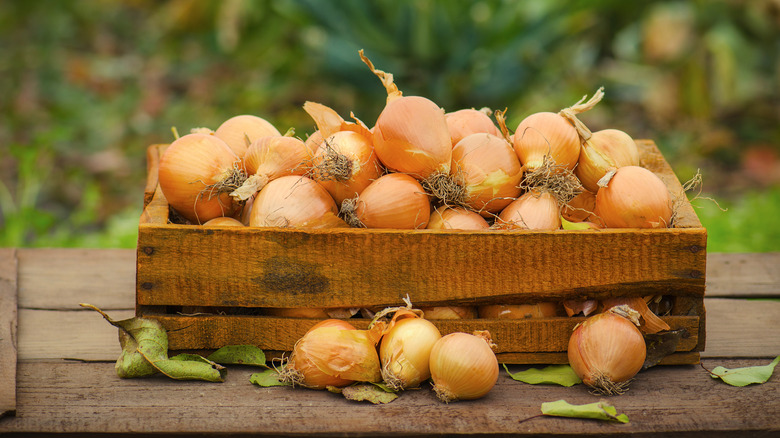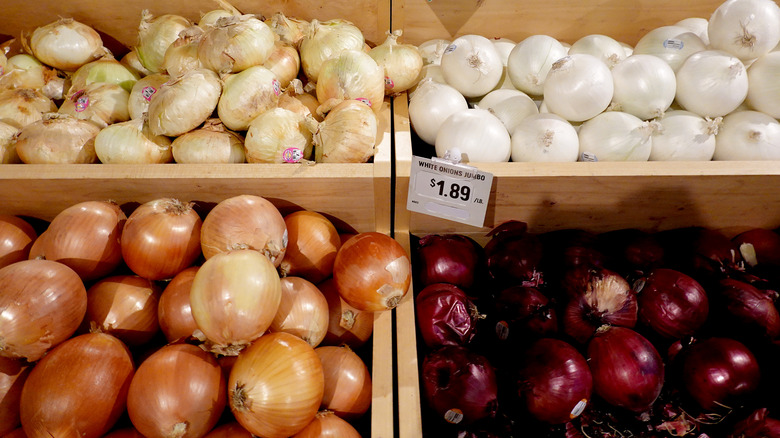Why Yellow Onions Are Better Than White If You're Buying In Bulk
Whenever you're planning to buy items in bulk, you first need to work out exactly how you're going to store your purchase. Keep in mind, buying in bulk is not always a cheaper option if you're not adequately prepared. For example, buying any sort of bulk meat means that you are going to need proper freezer space. Vegetables, too, require special locations in which to keep them for extended periods. This is why root cellars were and are so common on farms, as mechanized refrigeration only came into play relatively recently.
One pantry staple you can buy and be almost certain it will keep for weeks or months, is onions. The onion is a beautiful and versatile bulb that brings characteristic zing to a salad or can dissolve into sweetness when caramelized. Keeping your home stocked with this kitchen essential will ensure that you maintain a steady supply for stocks, soups, sauces, and salads.
Unfortunately, not all onions are made for long-term storage. This has more to do with the onions genetic makeup than the quality of your storage space, though there are certain requirements to keep in mind. While it's true that most onions can be stored long term with little to no problem, when it comes to bulk storage, it's best to store yellow onions. This is not a knock against the flavor or quality of white onions, but yellow onions have a specific quality that makes them excellent to keep in bulk.
Thick skin = long shelf life
It is a sad irony that one of the most popular white onions, doesn't store very well. The white Bermuda onion, prized for its sweet, mild flavor and exceptionally fast growing period — for you gardeners out there — does not keep for more than a few weeks. This is due to the fact that white Bermuda onions, as well as similar mild white Spanish and Portuguese onions, do not grow the thick outer skin layer required for months long storage seasons.
Observe a white onion when you're next at the grocery store. You'll see that they have thin, papery outer skins that flake and are easily peeled back. Now take a look at the neighboring yellow onions. You'll notice that yellow onions, such as a Yellow Globe or Copra, have a much hardier outer skin. This ensures that they will last for months at a time, whether you're growing, curing, and braiding the stalks at home, or purchasing a 10 pound bag from Costco.
For storage, you want to keep the onions properly ventilated. Any storage container with sufficient air flow, such as a milk crate, will help keep the onions from collecting moisture and rotting. Keeping onions in a cool, dry location is also key to their longevity. Any room in your house that maintains a consistently cool temperature is best; an air temperature between 30 to 50 degrees is ideal.

